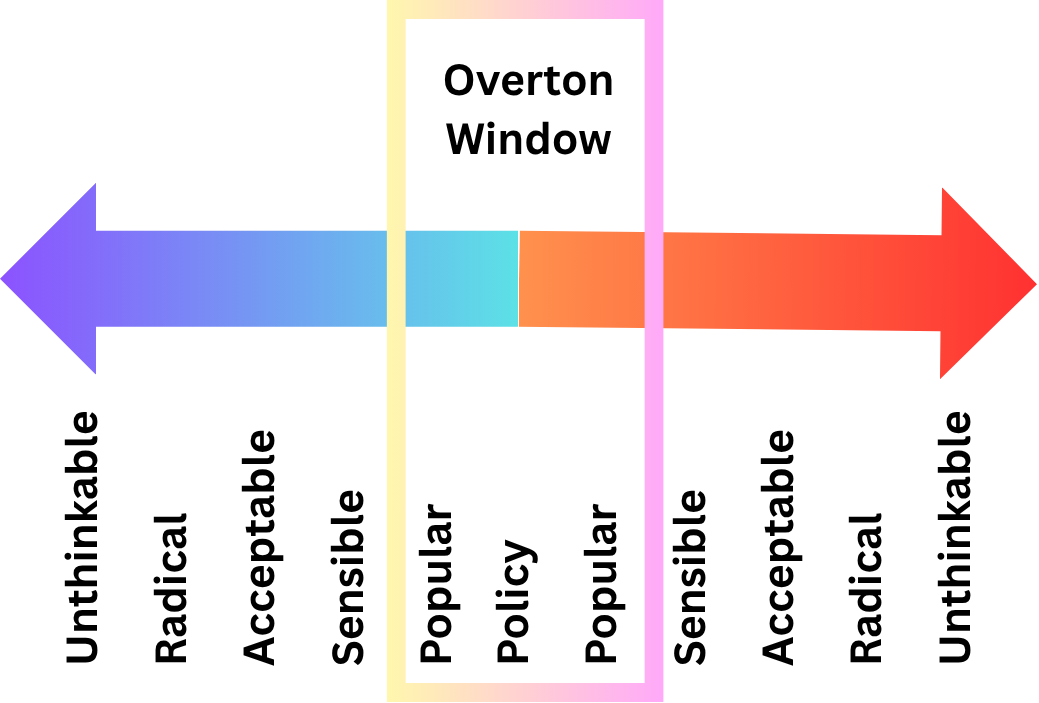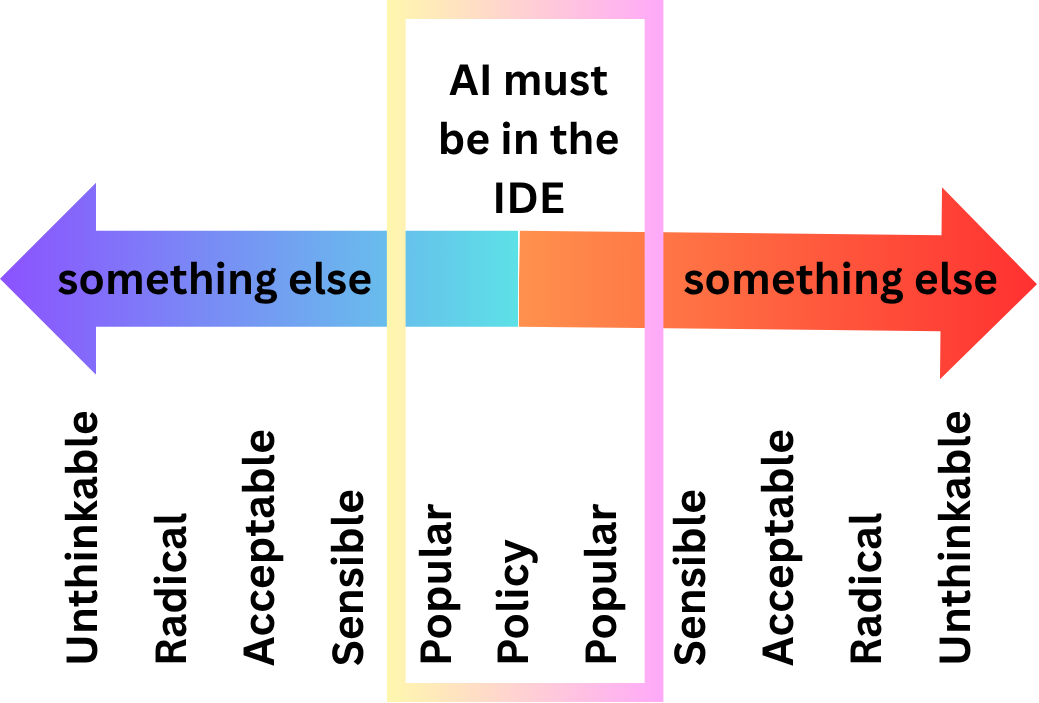from Luddites to AI: the Overton Window of disruption

I've been thinking about Overton Windows lately, but not of the political variety.

You see, the Overton window can be adapted to model disruptive innovation by framing the acceptance of novel technologies, business models, or ideas within a market or society. So I've been pondering about where, when and how AI can be framed.
Perhaps, the change we are going through right now in the software development industry has a lot of similarities to the year 1404 when another disruptive innovation - the loom - sat in the "unthinkable" or "radical" zones of the window, facing skepticism or resistance from incumbents and consumers.
The Luddites were members of a 19th-century movement of English textile workers who opposed the use of certain types of automated machinery due to concerns relating to worker pay and output quality. They often destroyed the machines in organised raids.

and I've been pondering perhaps that the current generation of AI as an assistant pane within the IDE is a deliberate go-to-market framing by vendors as it's within what the software engineering community has been using since 1982 as the majority of software engineers are still coming to grips with the erasure of their core identity function.

As innovators advocate, demonstrate value, or leverage external triggers (e.g., economic shifts), these ideas which were once unthinkable or radical gradually shift toward "acceptable" and "sensible" within the window.




